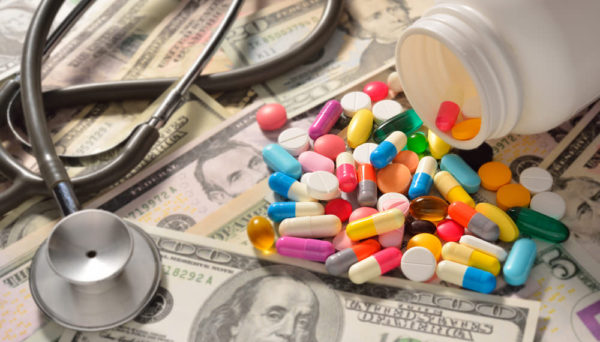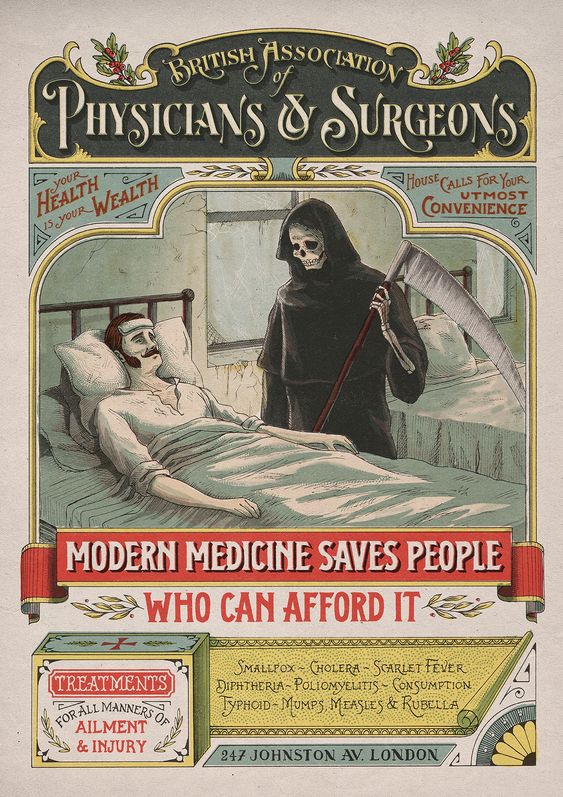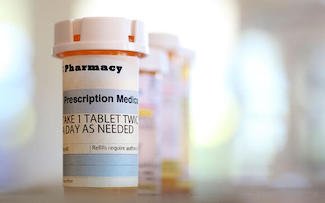 After Jackie Trapp was diagnosed with multiple myeloma, an incurable blood cancer, in 2015, she thought her biggest health shock was behind her. Then came the bills for Revlimid, a powerful cancer drug that her doctor said was her best hope for controlling the disease. The first month’s supply cost $11,148; the second, $12,040 – and her insurer denied coverage. “I’d need to take the drug every month, for years,” says Trapp, 59, a former high school teacher and realtor from Muskego, Wis. “My husband and I had done well in our careers, we’d been frugal and we’d saved, but there was no way paying $120,000 a year or more was sustainable.”
After Jackie Trapp was diagnosed with multiple myeloma, an incurable blood cancer, in 2015, she thought her biggest health shock was behind her. Then came the bills for Revlimid, a powerful cancer drug that her doctor said was her best hope for controlling the disease. The first month’s supply cost $11,148; the second, $12,040 – and her insurer denied coverage. “I’d need to take the drug every month, for years,” says Trapp, 59, a former high school teacher and realtor from Muskego, Wis. “My husband and I had done well in our careers, we’d been frugal and we’d saved, but there was no way paying $120,000 a year or more was sustainable.”
Figuring out how to pay for the drug that’s keeping her alive has become an all-consuming project. Trapp fought her insurer’s denial and won, and has switched health plans twice to ensure continued coverage. To afford her annual co-pays for Revlimid – $15,000 to $21,000 a year recently, before a new law capping out-of-pocket costs for people on Medicare took effect in 2024 – she’s tapped into assistance programs from drug makers and grants from health care foundations. She has also drawn down savings, taken out two mortgages, sold her car, some furniture, and her husband’s classic truck, and lives as cheaply as possible, growing her own vegetables and DIY-ing everything from lawn care to hair cuts. Continue reading →
 Phenazopyridine — sold under various brand names including Azo, Pyridium, Prodium, Pyridiate, Baridium, and Uricalm — is available over the counter (OTC) in the US and UK at lower strengths and by prescription at higher strengths.
Phenazopyridine — sold under various brand names including Azo, Pyridium, Prodium, Pyridiate, Baridium, and Uricalm — is available over the counter (OTC) in the US and UK at lower strengths and by prescription at higher strengths.
 What if everything you thought you knew about anxiety – or ADHD – was missing the bigger picture? In a powerful episode of The Mel Robbins Podcast , Mel sits down with psychiatrist Dr. Tracy Marks to unpack the deep, often misunderstood connection between these two conditions. What she shared can shift not just how you understand your own mental health, but how you support the people you love.
What if everything you thought you knew about anxiety – or ADHD – was missing the bigger picture? In a powerful episode of The Mel Robbins Podcast , Mel sits down with psychiatrist Dr. Tracy Marks to unpack the deep, often misunderstood connection between these two conditions. What she shared can shift not just how you understand your own mental health, but how you support the people you love.  1911, May 15
1911, May 15 President Trump touted a new executive order that would more closely align drug prices in the US with those sold in Europe and the UK, opening the door for drugs used by millions of Americans to become cheaper.
President Trump touted a new executive order that would more closely align drug prices in the US with those sold in Europe and the UK, opening the door for drugs used by millions of Americans to become cheaper. I was a third week Senior at Glenbrook North High School in 1965 – and I knew that something was wrong…
I was a third week Senior at Glenbrook North High School in 1965 – and I knew that something was wrong… Drugmakers plan to raise U.S. prices on at least 250 branded medications including Pfizer COVID-19 treatment Paxlovid, Bristol Myers Squibb’s cancer cell therapies and vaccines from France’s Sanofi at the start of 2025, according to data analyzed by healthcare research firm 3 Axis Advisors.
Drugmakers plan to raise U.S. prices on at least 250 branded medications including Pfizer COVID-19 treatment Paxlovid, Bristol Myers Squibb’s cancer cell therapies and vaccines from France’s Sanofi at the start of 2025, according to data analyzed by healthcare research firm 3 Axis Advisors.  Individuals with attention deficit hyperactivity disorder (ADHD) may be at twice the risk of sustaining traumatic dental injuries (TDIs). The systemic review was published in the European Review for Medical and Pharmacological Sciences.
Individuals with attention deficit hyperactivity disorder (ADHD) may be at twice the risk of sustaining traumatic dental injuries (TDIs). The systemic review was published in the European Review for Medical and Pharmacological Sciences. ‘Granny’ is an old friend and contributing columnist to the family of web-sites of Kettle Moraine Publications. Is she a pharmacist or pharmacologist? Absolutely not – but she is now in her 80’s and has learned from a personal standpoint about the good and bad of that which is manipulated by the likes of BIG Pharma and those who they line the pockets of – our elected Congress official-DUMB and those in the Medical field who continue to buy into all of the nonsense of the sales pitch.
‘Granny’ is an old friend and contributing columnist to the family of web-sites of Kettle Moraine Publications. Is she a pharmacist or pharmacologist? Absolutely not – but she is now in her 80’s and has learned from a personal standpoint about the good and bad of that which is manipulated by the likes of BIG Pharma and those who they line the pockets of – our elected Congress official-DUMB and those in the Medical field who continue to buy into all of the nonsense of the sales pitch.
 After Jackie Trapp was diagnosed with multiple myeloma, an incurable
After Jackie Trapp was diagnosed with multiple myeloma, an incurable  In a new experiment, researchers found that individuals with distinguishing qualities of attention deficit hyperactivity disorder, like difficulty regulating where they focus their attention, and restlessness, have better foraging strategies than those with more neurotypical traits.
In a new experiment, researchers found that individuals with distinguishing qualities of attention deficit hyperactivity disorder, like difficulty regulating where they focus their attention, and restlessness, have better foraging strategies than those with more neurotypical traits. Uncle Sam has made some progress in reducing cancer drug shortages by working with manufacturers to restart U.S. production facilities that were previously shut down, as well as securing vital overseas supplies.
Uncle Sam has made some progress in reducing cancer drug shortages by working with manufacturers to restart U.S. production facilities that were previously shut down, as well as securing vital overseas supplies. Health authorities in Punjab, Pakistan, where the incident took place say that Avastin, a cancer drug injection made by Swiss pharmaceutical giant Roche, say they are currently probing two distributors of the shot, which contains the active ingredient bevacizumab.
Health authorities in Punjab, Pakistan, where the incident took place say that Avastin, a cancer drug injection made by Swiss pharmaceutical giant Roche, say they are currently probing two distributors of the shot, which contains the active ingredient bevacizumab.